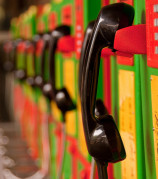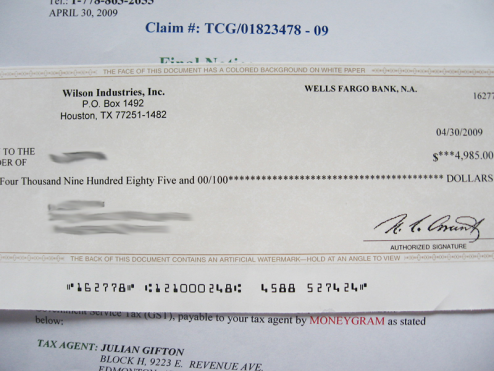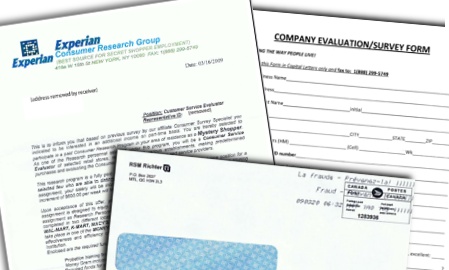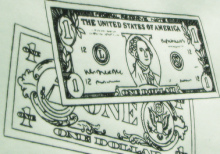Hopefully most of you know better than to ever accept a check from a stranger, but I think it’s always good to share horror stories like this one to remind people of why it’s a bad idea. The problem is, if you deposit a check that turns out to be fake, you’re the one who will be held responsible for it. Unlike credit card theft, there’s no law or rule in place to protect you from check fraud or advance fee fraud–and your bank doesn’t want to be left holding the bag any more than you do. [More]
advance fee

Scammer Picks Wrong Sympathy Handicap
Any good grifter knows that a classic shortcut to sympathy is to fake a handicap. This guy, however, should have thought about the distancing effect of using a telephone relay service, which is designed for people who are hearing impaired.

Congratulations! You Just Won A Scam!
Is there anything scammers won’t try in their attempts to disguise advance fee fraud? Nope. Chelsea and her husband just found out that OMG THEY JUST WON 350K!!!1! from the Gaming Association of America. They’ll be receiving their check shortly, but in the meantime the GAA has sent them a much smaller check for about $5,000 to cover any fees associated with the prize. All they need to do is contact the “non-government service tax agent (GST)” to take care of cashing and handing over that $5k, and they’ll be swimming with hookers in champagne-filled pools.

Here's What A Mystery Shopper Scam Looks Like
Want to see what a secret shopper scam actually looks like? Tracey sent us scans of the one that arrived in her mailbox today. It included a letter printed on cut-and-paste letterhead, a form, and a check for $4,200. The idea behind this sort of scam—also called an advance fee fraud or wire transfer scam—is to get the victim to deposit the check, wait for it to clear, then wire back the bulk of the money. Weeks or months later, the check will turn out to be fake, and by law the victim owes the bank for the full amount of the check.

Anti-Fraud Websites Emerging To Fight 'Massive Ignorance'
The website Scam Victims United warned its readers about last week’s arrested ponzi schemer, Nick Cosmo, nearly four months ago, based on a visit one of its forum members made to Cosmo’s office. Reuters points out that this site and others like it—Fraud Aid and Scam Warners, for example—are enjoying healthy traffic spikes right now, which is great news in the fight against fraud.


